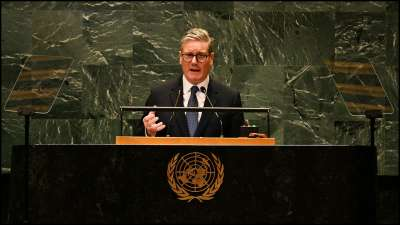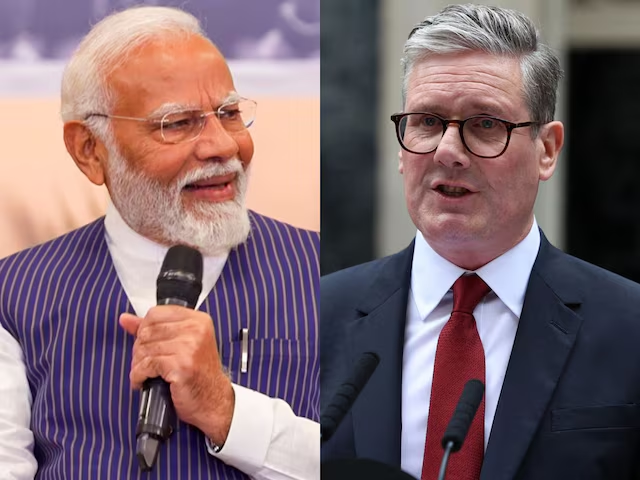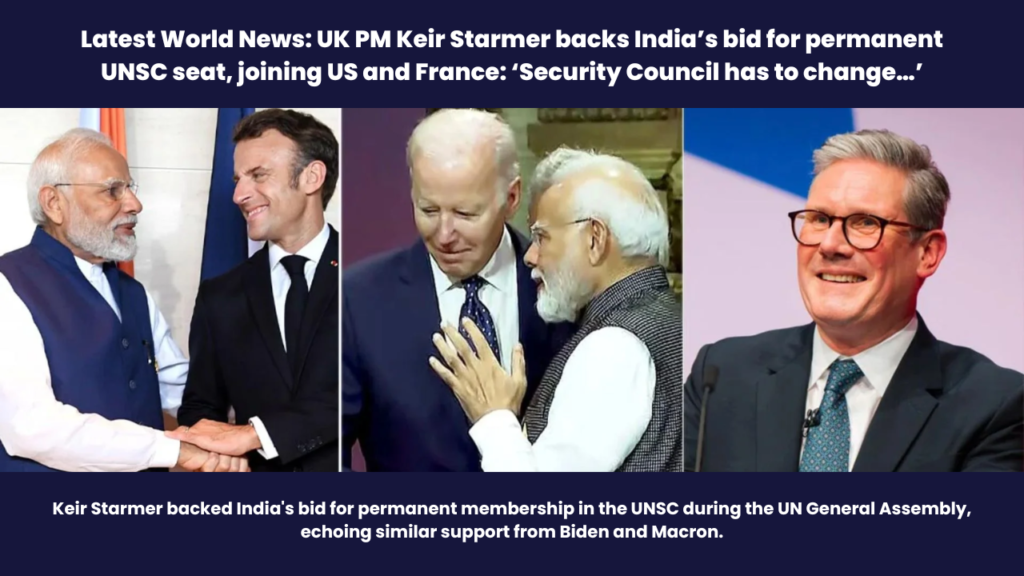UK Prime Minister Keir Starmer backed India’s bid for a permanent membership at the United Nations Security Council (UNSC), calling for winds of “change.” India earned the UK’s support days after US President Joe Biden and French President Emmanuel Macron expressed similar views.

Speaking at the general debate of the 79th session of the United Nations General Assembly in New York, Starmer emphasised the need for the UNSC to evolve. “…the Security Council has to change to become a more representative body, willing to act – not paralysed by politics,” said Starmer.
Currently, the UNSC consists of five permanent members and ten non-permanent members elected for two-year terms by the General Assembly.

The permanent members are Russia, the UK, China, France, and the United States, all of whom have veto power over substantive resolutions.
Here’s what we know so far.
UN General Assembly Debate
UK PM Starmer called for an increase in the seats for elected members. “We advocate for permanent representation for Africa on the Council, alongside Brazil, India, Japan, and Germany as permanent members, as well as an increase in seats for elected members,” said the UK Prime Minister.

‘More effective, more representative’
Earlier, French President Emmanuel Macron also voiced strong support for India’s inclusion as a permanent member of the UNSC. While citing a need for the UN to be more “effective,” Macron said this could be possible by making the body more representative.
“…So let’s just make these United Nations more effective, first by perhaps making them more representative. That is why France, and I repeat here, is in favour of the Security Council being expanded,” he told the UN General Assembly. He mentioned that Germany, Japan, and Brazil should also be permanent members, as well as two other nations that Africa will decide upon.

Last week, the US also voiced support for India to have a permanent seat at the UNSC.
‘Outdated’ UNSC model
India has argued for decades that it deserves to be a member of the UNSC. At the ‘Summit of the Future’ on September 22, the UN Secretary-General Antonio Guterres also warned of the “outdated” model of the UNSC. He said the body would lose all credibility unless its working methods were reformed.


